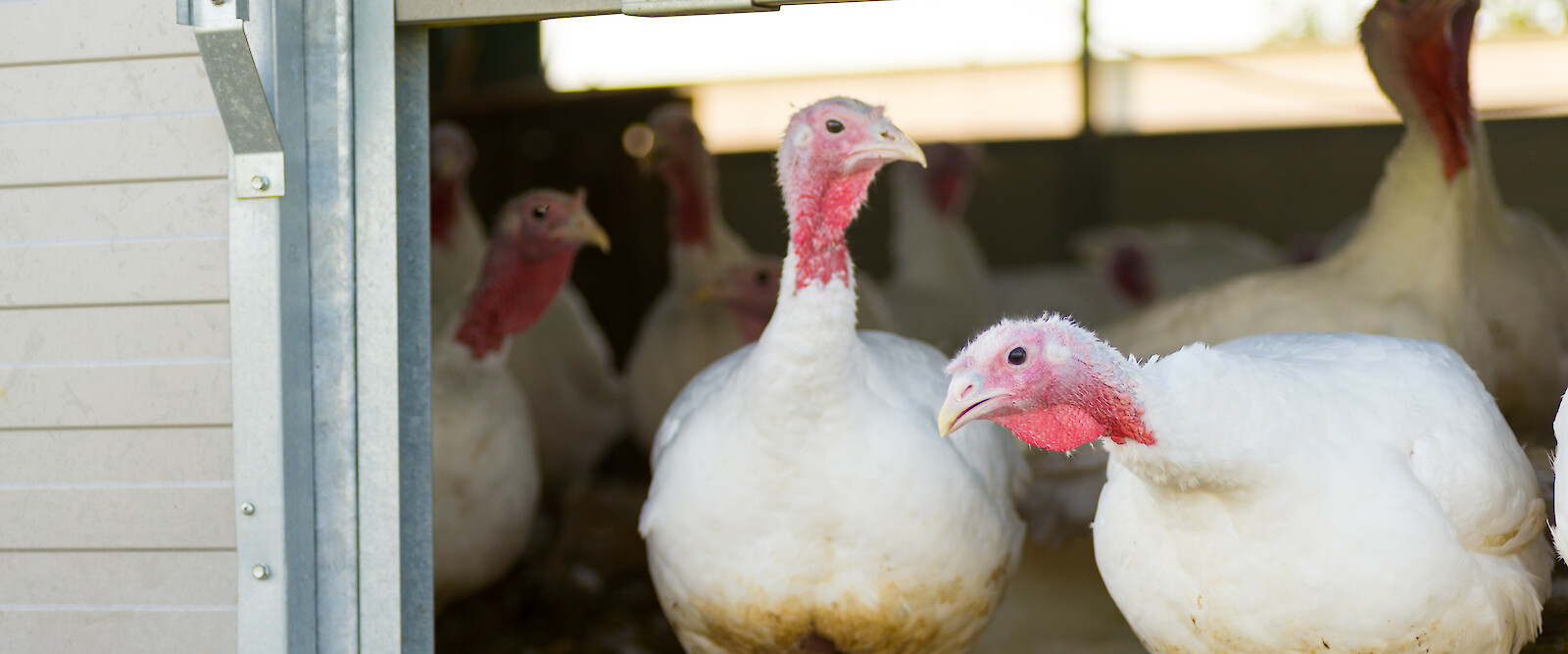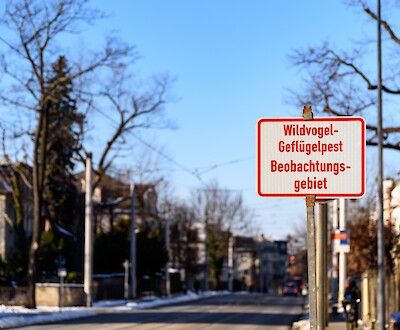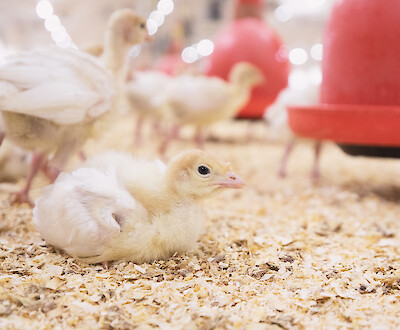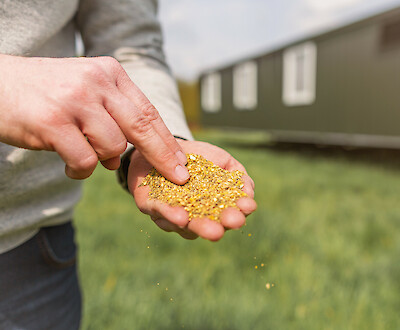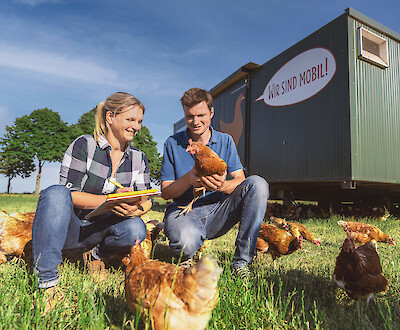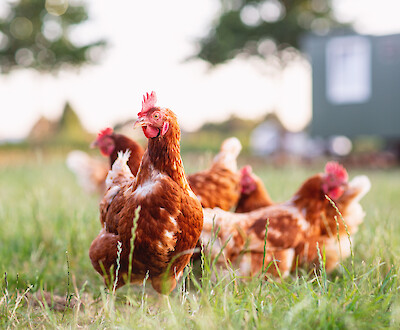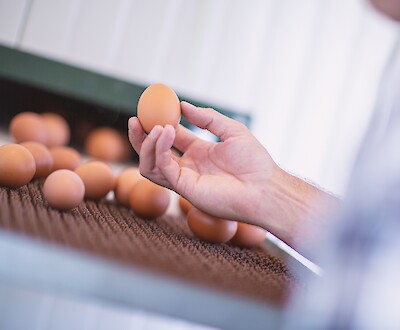Demand-covering brake on growth
Purpose and advantages of maintenance feeding in turkey fattening
The COVID 19 pandemic affects everyday life and work in many areas of daily life. The poultry industry has also been severely affected. In many places, slaughterhouses and meat-processing plants are only working to a limited extent. This also affects turkey fattening processes. Delays in the acceptance of animals ready for slaughter are economically highly risky for many fatteners. Special maintenance feeds can help to secure the supply of the animals and minimise the daily increase in slaughter weights until the final acceptance of the animals by the slaughterhouse.
Delays in the process and in the acceptance of animals for slaughter disrupt the tightly scheduled operations on poultry farms. In some cases, farmers are only informed at short notice - sometimes only 24 hours in advance - about the postponement of culling. As a result, the animals remain on the farms on call. This circumstance poses unwanted challenges: Turkey fatteners have to reorganise the dates for bringing in and taking out the birds. At the same time, there may be a lack of feed to supply the animals that remain on the farm longer than planned.
The reasons for the postponement of stabling can vary. Possible causes are, for example, disruptions in slaughterhouses due to illness or technical problems. The ban on movement in the event of an epidemic (e.g. in connection with an avian influenza case) can also temporarily prevent the transport of animals.
Challenges of the "waiting" or "bridging" phase
The "waiting" or "bridging" phase is a difficult balancing act for farmers. On the one hand, they have to ensure the supply of turkeys ready for slaughter. On the other hand, they have to prevent the slaughter weights from increasing too much until the new release date. After all, the payout prices and thus the profitability of the flock depend on the slaughter weights.
A feed is only suitable for bridging the waiting or bridging period if it covers the maintenance needs of the turkeys - no more and no less. A Phase 6 feed is not optimally suited for this purpose. Its composition is aimed at increasing the live weights of the turkeys. The high nutrient content and the higher feed price make the standard feed rather uninteresting economically for use as maintenance feed.
Maintenance feeds: highly specific and economically relevant niche feeds
In order not to further increase the weight of the turkeys in the bridging phase, special maintenance feeds are required, which are characterised by an adapted protein and energy content. The proportion of amino acids and minerals contained also differs from the usual standard feeds. The recipe of the maintenance feeds of our deuka and Club brands is tailored to the special requirements of maintenance feeding:
- The proportion of individual cereal varieties and by-products is shifted compared to standard feed.
- The content of soy products as well as fats and oils is reduced.
- The amount of amino acids and minerals is adequate and balanced.
As a result, feed with a lower nutrient density is obtained, as needed to minimise the increase in turkey weights during this phase. This composition of the complete feed makes it possible for the farmer to provide the birds with optimal nutrition that meets their needs. Appropriate maintenance feeds from deuka or Club are available throughout Germany.
Advance discussion is better than reordering
Situations such as the current Corona pandemic show that postponements of culling dates sometimes occur spontaneously and unannounced. The result: hectic, stress and the danger of under- or over-supply of the animals. In order to avoid such scenarios, we advise turkey farmers to contact their field staff or sales office in good time. Together we can then discuss possible scenarios and discuss the feeding needs of the animals. In this way, we can plan the delivery of suitable maintenance feeds in a timely manner and also organise orders and deliveries at short notice.
Conclusion
- Dates for the removal of turkeys from the barn can sometimes be postponed spontaneously.
- Continuing to feed turkeys with standard feeds during the waiting or bridging period is not economically interesting due to the high nutrient content and the higher feed price.
- Farmers should use separate maintenance feeds to supply the animals during this phase. These are characterised by a special recipe with an adapted protein and energy content. This also reduces feed costs.
- Our deuka or Club brand maintenance feeds are available nationwide.
- Farmers should discuss the topic of maintenance feeding with their responsible sales representative at an early stage.
Image source (top slider): © reichdernatur - stock.adobe.com
